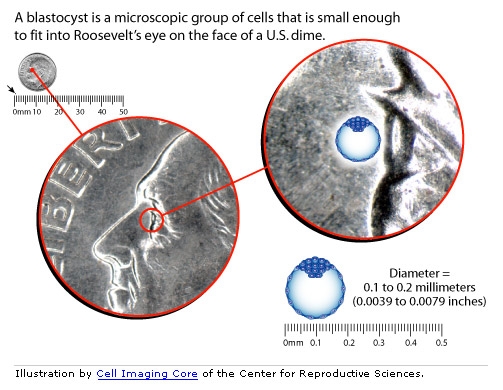Go ask one of those opponents of stem cell research why it’s OK to donate a kidney. They’ll look at you like you’re nuts. They’ll tell there’s a person who’s about to die and another person with an extra kidney, and it’s all that simple.
In 2006 you won’t hear any protest that kidney donation is something Frankenstein would do. Stem cell research opponents won’t assert that the extra kidney constitutes a “human life” even though it is alive and human. They won’t tell you that kidney transplants are morally wrong. They won’t claim that a kidney has an invisible soul.
Instead, they will reassure you that a spare kidney is not a unique human being. They will tell you that kidney cells are only “potential” human beings (reproductive cloning, illegal in most countries, could accomplish this). As icing on the cake, they will assert that kidneys don’t feel any pain.
At that point you’ll need to jump in. For starters, you might remind the stem cell research opponents that blastocysts (from which stem cells are harvested) are clumps of about 150 cells small enough to fit inside Roosevelt’s eye on a U.S. dime.

You might then add that blastocysts are only five days old when the stem cells are harvested. At this point in time, the stem cells are pluripotent: they can develop into all the different cell types in the body (except the placenta), but they have not yet developed into any specialized type of cell. …

